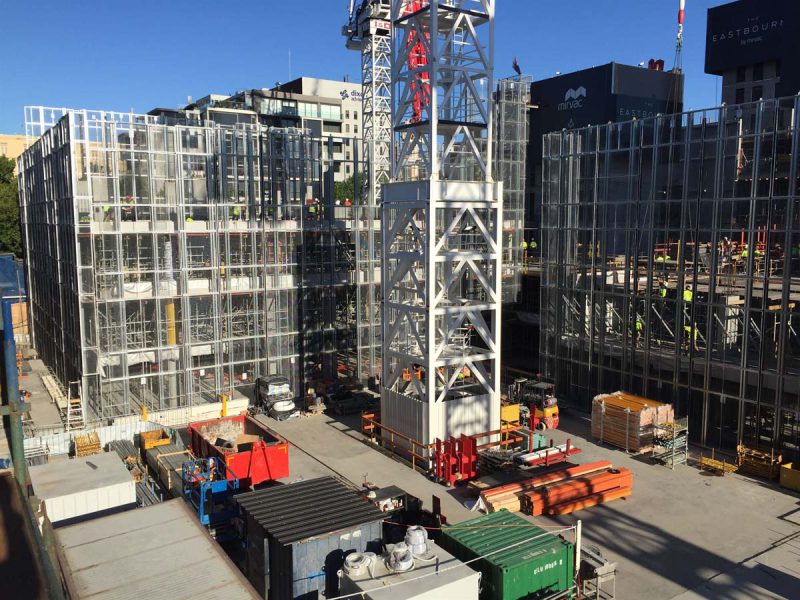Steel Column Formworks and Their Role in Sustainable Building Practices
08 October 2024
Advantages of steel column formworks in sustainable building practices. Learn how these durable, reusable systems enhance construction efficiency.
Steel column formworks play a crucial role in advancing sustainable building practices by enhancing the efficiency and durability of construction projects. These formworks, known for their reusability and precision, contribute significantly to reducing waste and improving structural integrity. As the construction industry seeks more eco-friendly solutions, steel column formworks stand out as a key component in achieving greener, more sustainable outcomes.
What are Steel Column Formworks?
Steel column formworks are specialised systems used to shape and support columns during the concrete curing process. They provide a mould for the concrete to set, ensuring the final column has the desired dimensions and strength. Unlike traditional timber formworks, steel formworks offer numerous advantages, particularly in the context of sustainable building practices.
Advantages of Steel Column Formworks
Steel column formworks offer a range of benefits that make them a valuable asset in sustainable construction. Here are some of its significance to both efficiency and cost-effectiveness in building projects.
• Durability and Reusability: Steel formworks are highly durable and can withstand multiple uses without significant wear. This reusability reduces the need for new materials for each project, minimising waste and conserving resources.
• Precision and Quality: Steel formworks provide a high degree of accuracy in shaping columns. This precision ensures that columns meet strict engineering specifications, contributing to the overall quality and safety of the building.
• Faster Construction: The strength and rigidity of steel formworks facilitate quicker assembly and disassembly, leading to faster construction times. This efficiency reduces project timelines and associated energy consumption.
• Reduced Environmental Impact: By opting for steel formworks, construction projects can lower their environmental impact. The longevity and reusability of steel formworks mean fewer materials are needed, and less waste is generated. Additionally, steel is often recyclable, further enhancing its sustainability credentials.
• Cost-Effectiveness: Although the initial cost of steel formworks may be higher than timber, their extended lifespan and reusability make them a cost-effective option in the long run. Fewer replacements and maintenance needs translate into overall savings.
The Role of Steel Column Formworks in Sustainable Building
Incorporating steel column formworks into building projects aligns with the principles of sustainable construction by offering several key benefits. Their inherent durability allows for multiple uses over time, significantly reducing the need for new materials and minimising waste. Additionally, the precision and strength provided by steel formworks ensure that structures are built to high standards, reducing the need for repairs and extending the lifespan of buildings.
By reducing the overall environmental impact of construction projects, steel column formworks help to mitigate climate change. They contribute to a more sustainable future by reducing greenhouse gas emissions. This efficiency in both material use and construction processes supports the broader goals of sustainability by lowering environmental impact and promoting resource conservation.
Omniform: Your Partner in Sustainable Formwork Solutions
Omniform is committed to providing formwork solutions that support sustainable building practices. With years of experience in temporary works design and formwork material development, we understand the critical role that formworks play in the construction process.

